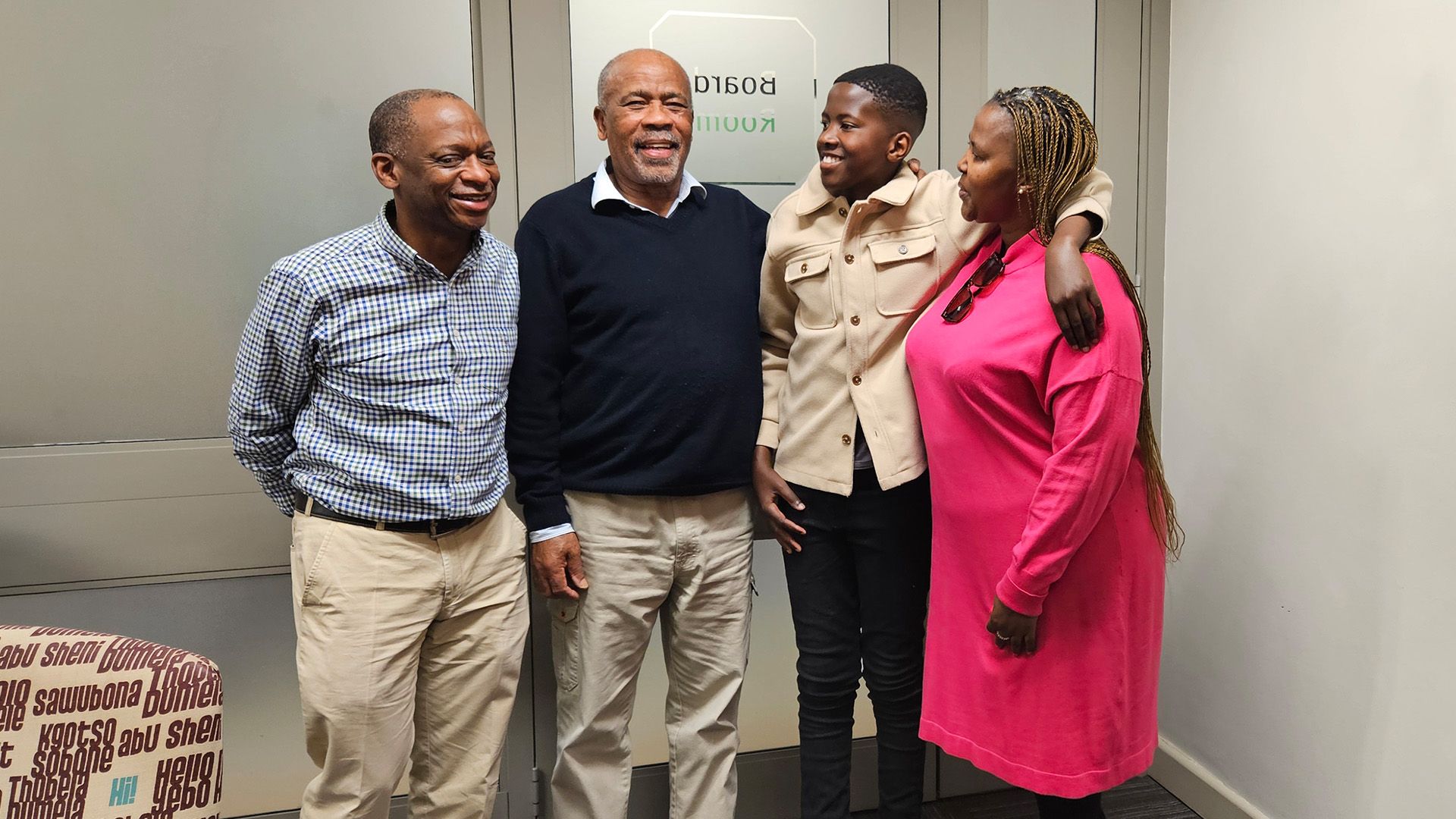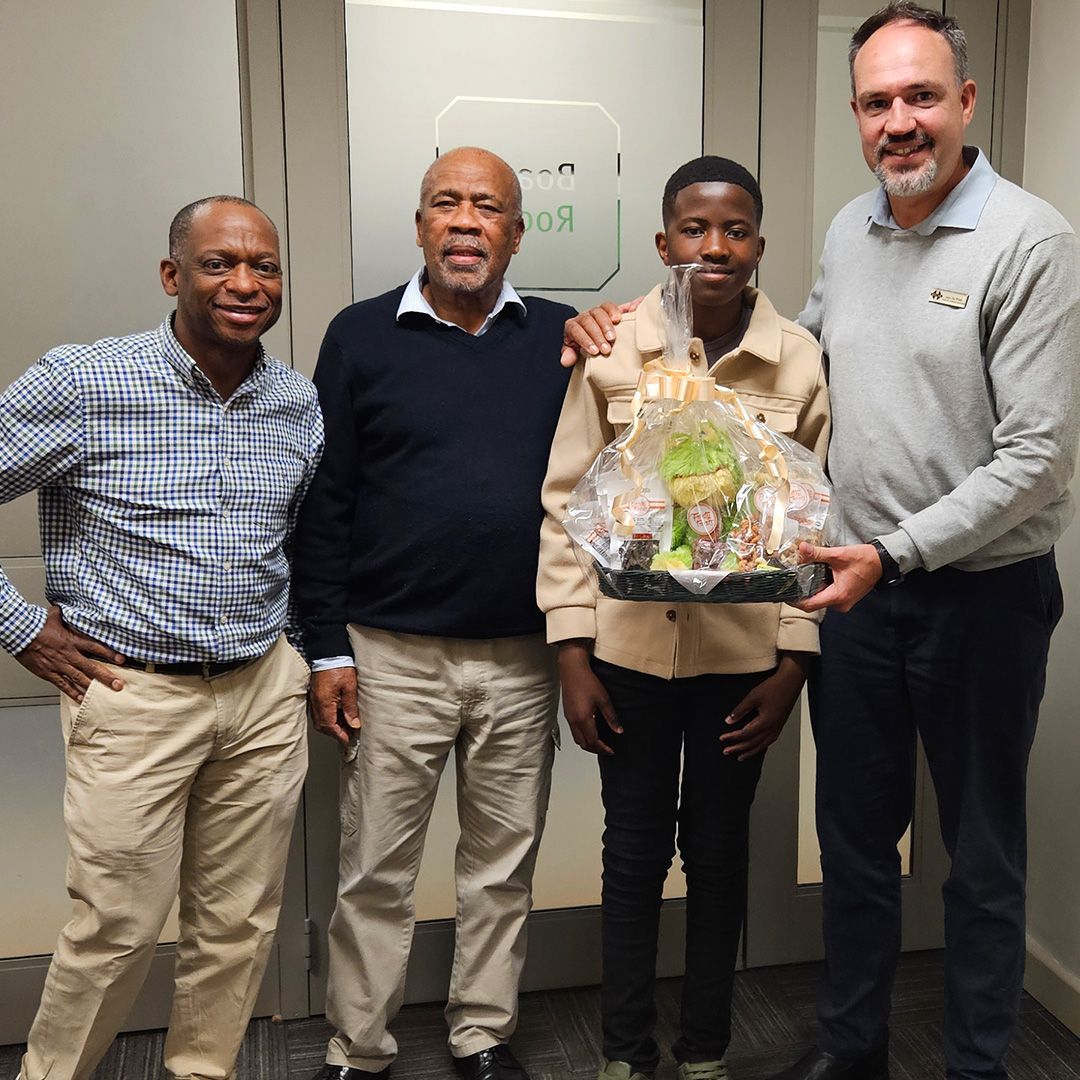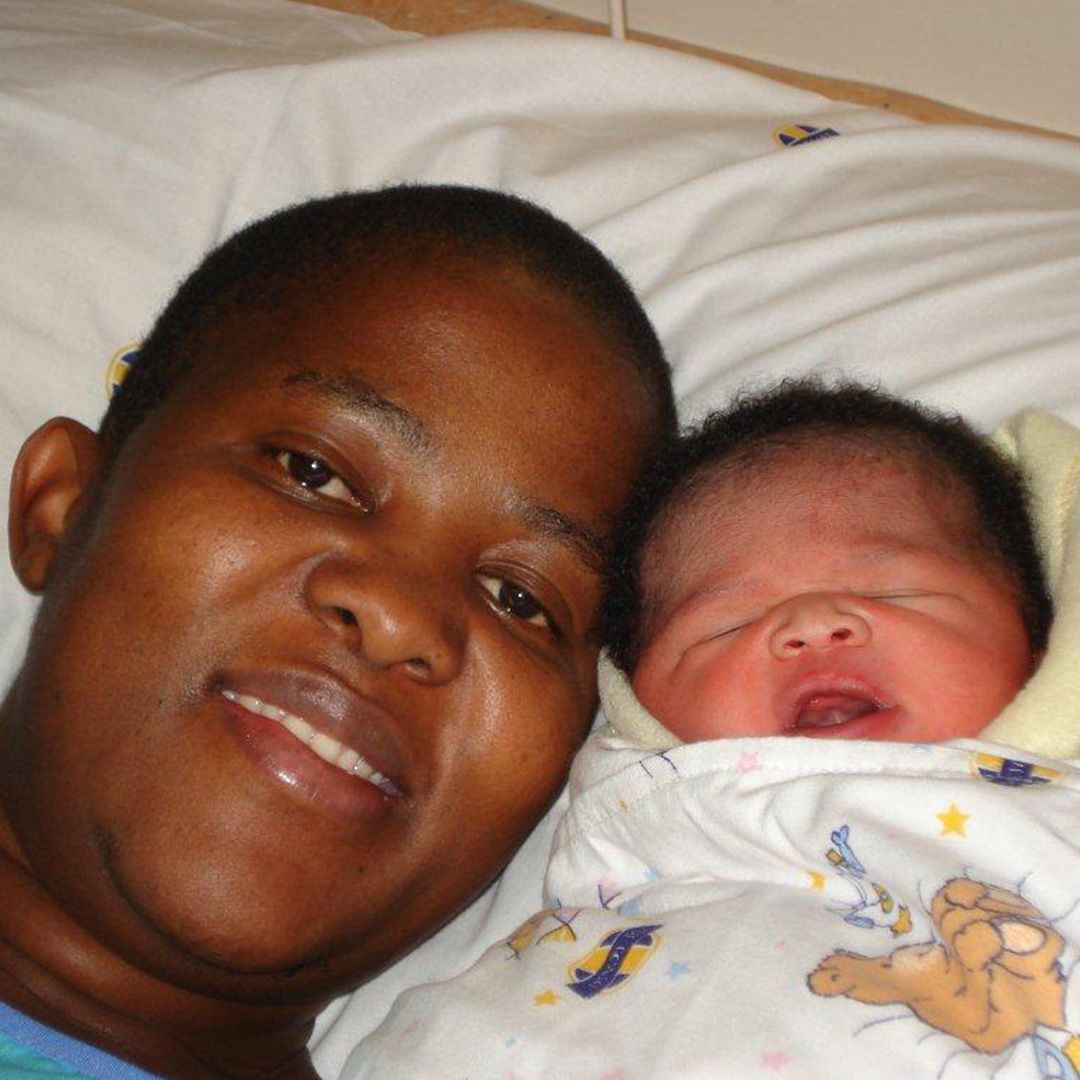Pono-Entle’s heartwarming homecoming
Back where he belongs - from left to right are Dr Omolemo Kitchin, paediatric pulmonologist, gynaecologist and obstetrician Dr Michael Thubisi, Pono-Entle Maluleke and Desiree Maluleke.
Netcare Waterfall City Hospital’s first baby revisits his birthplace
Thirteen years after his arrival as Netcare Waterfall City Hospital’s first baby, Pono-Entle Maluleke, affectionately known as ‘Mr Netcare Waterfall’, recently visited the place of his birth.
Born just before 09h00 on 7 July 2011, weighing a healthy 2.84 kilograms, Pono’s birth marked a significant milestone for doctors and staff at Netcare Waterfall City Hospital, which had just opened its doors.
Pono’s return to his birthplace was a memorable moment not only for him and his mother, Desiree Maluleke, but also for hospital management, staff and doctors – many of whom are still at the healthcare facility.
For Desiree, the visit felt like a journey back in time. She vividly recalls holding Pono-Entle, which means 'Beautiful vision from God’, for the first time in the hospital’s brand-new maternity ward. At the time, the hospital was one of few buildings in the area and by far the tallest. Nowadays, the area has developed into a busy metropolis and the hospital has been expanded and enhanced too, becoming a premier healthcare facility and an important part of this fast growing community.
When Desiree recently contacted Netcare to obtain a copy of the media story that was written about Pono-Entle’s birth to mark her son’s 13th birthday celebration, she was met with a delightful surprise.
“Not only did the hospital provide me with a copy of the story and some photographs, but they invited us to join them for a small celebration. The atmosphere at Netcare Waterfall City Hospital was one of pure joy when we arrived as the staff, some of whom had been present at Pono-Entle's birth, gathered to welcome ‘their firstborn’ back home. A special tea party was arranged, and Pono received a gift hamper of healthy snacks, which filled him with excitement,” added Desiree.
She describes the experience as heartwarming. "Pono was speechless. When we came home, he could not stop talking about the experience – in fact, he still talks about it."
Dr Omolemo Kitchin, a renowned paediatric pulmonologist with 25 years of experience, and Dr Michael Thubisi, a distinguished gynaecologist and obstetrician with 32 years in private practice, were pivotal in Pono’s birth and welcoming him back to his birthplace recently. Both specialists have been with Netcare Waterfall City Hospital since its inception and have earned the admiration of their patients for their dedication and compassion.
According to hospital general manager Jaco du Preez, the doctors gave Pono-Entle a hospital tour, pointing out the advancements made over the years. “Dr Kitchin, with his expertise in paediatric pulmonology and allergies, shared insights into his daily routine, while Dr Thubisi, who finds his greatest gratification in delivering healthy babies to joyful parents, walked Pono-Entle through the maternity ward and nursery at the hospital. He even showed Desiree her file, which was the first one he ever opened.
“Pono-Entle's homecoming to his birthplace was not just a personal milestone but also a celebration of the hospital's journey and its impact on countless families. The staff at Netcare Waterfall City Hospital, both old and new, expressed their admiration for Pono-Entle, affectionately dubbing him ‘Mr Netcare Waterfall’. There is a deep connection between the hospital and the community we serve that makes our work so much more fulfilling,” says Du Preez.
As Pono-Entle prepares to transition from Chloorkop Primary School to high school in a few months, the visit to Netcare Waterfall City Hospital serves as a reminder of where he came from. Reflecting on their life in Klipfontein View, a tight-knit community where Pono-Entle has many friends and a busy social life, Desiree says Pono enjoys drumming, a talent he has honed since the age of two and now shares with his church community. Meanwhile, Desiree is actively looking for a new career opportunity, hoping to find a role that will support their aspirations and provide stability for the family.
This visit was particularly poignant for Desiree and Pono, as it coincided with Pono-Entle entering his teenage years. What began as a search for a picture of his birth story for Pono’s birthday, turned into something much more significant, and she and Pono will never forget the day.
"We took many pictures, and it felt like a family reunion. The staff welcomed us with open arms and love, making Pono feel like a star. This event was more than just a celebration – it was a touching reminder of the love and care I felt on the day Pono was born.
“It was a moment of pride and joy, seeing Pono recognised and celebrated by the very place that marked his beginning,” concludes Desiree.
















